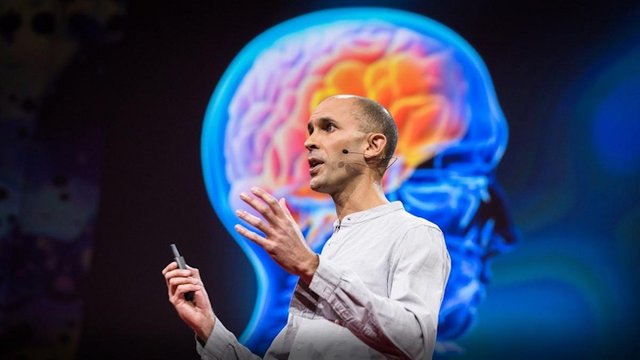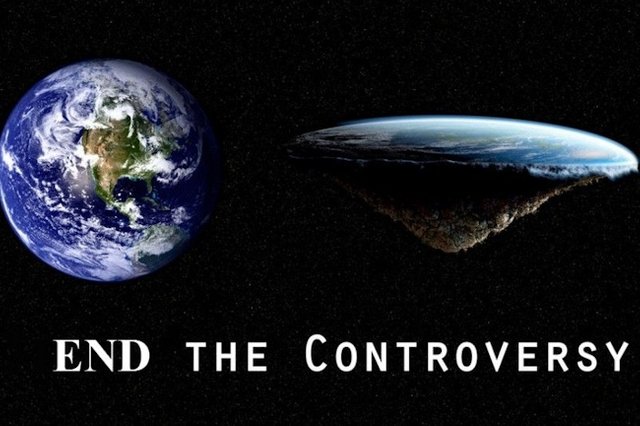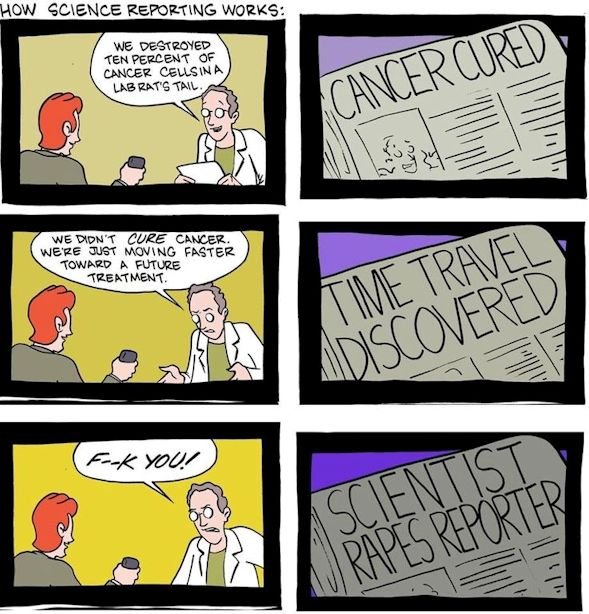The reasons why science communication benefits you as a scientist – Why talking to other people is important for your research

Why should you put time and effort into something that feels like an extra chore? There are very tangible benefits of making your science reach beyond your laboratory or office, benefiting both you as a scientist and the society as a whole.
With the accelerated flow of information provided by the internet, it is more important now than ever to be proactive on contributing to communicate science in a clear and effective way.
It is really worrying to see that scientific principles that have been corroborated since decades, or sometimes even hundreds of years, are suddenly being downgraded as just another opinion – usually by people failing to grasp that the same scientific principles they are so incredulous about constitute the very base of the progress and advancement that they live in and benefit from on a daily basis.

Ironically, I believe a big part of this mistrust in science and scientists has its roots precisely in insufficient, deficient and unsuccessful science communication.
Not only scientist fail to make their science accessible for the general public by being hermetic and reclusive, but also the press usually does a really disappointing job on reporting the newest findings, often opting for the sensational headline and misleading interpretations of the research instead of an accurate report of the findings. Promotion of such distorted views likely leads to disappointment and further misunderstanding of the state of progress in a given field.

On the other hand, at least in mainstream western culture, there is a “pop-science” trend emerging within the millennial generation that approaches science more as some sort of ornamental quirk, without actually worrying too much about understanding what they stand for ( @kyriacos recently wrote an article about it). I don’t think this attitude is detrimental per se, but it is certainly not an approach that is useful or helpful for promoting the understanding of science.
The problem usually comes when these two approaches (science denialists vs science groupies) collide on a certain topic and then it just becomes a battle of ego and animosity where no one really fully understands what they are talking about. This is where scientists come in: by having a deeper knowledge and unique insight into the topics being discussed, one can contribute to clarify some misunderstandings.
Not only that, but by providing good arguments in a constructive tone –instead of ostracizing skeptics by questioning their intelligence upfront– we can contribute to steer the minds of the undecided towards a better informed, more solid notion of current science (by experience I know that those fanatical about their beliefs, logical or not, are almost impossible to convince otherwise).
However, communicating your science to a wider, non-specialized audience also offers significant perks that benefit you directly as a scientist. For example:
You get more visibility.
If a tree falls in the forest, and no one is around, does it make a sound? Well, of course it does, but no one is there to hear it! Many of us are familiar with the sad reality of having an extremely limited audience for our research, but it doesn’t have to be like this!
While most research institutes have a strict policy about not revealing data or specific information about ongoing projects, it is certainly possible and accepted to talk about the wider and more general aspects of it, as well as discussing and promoting work that has already been produced.

By reaching out and communicating your science to the general public, you get the opportunity to explain why what you do is important. Furthermore, there is a chance that your ideas reach someone who was not familiar with your work but have been looking for something like it; collaborations can spark that benefit both parts. Which ties up with the next point, which is:
Your science gets more support.
The more people know about your science, the more likely you will be to reach someone who will be interested in supporting it and taking it further. It could be in the form of collaborations or attention from governmental or private organizations. Another benefit could be that you start being recognized as an authority –an expert– in your field. Which completely makes the difference between people wondering “who is this guy?” and people acknowledging “ah, that is the guy that talks about solar energy/anticancer therapies/climate studies etc.” This can help building an extra layer of credibility and impact to your work.
Finally, by becoming a more familiar face, there is a chance to fight against the mistrust towards science. By showing that scientists are willing to be open and discuss their research with those interested in it, part of the secretive and devious reputation that some people associate with scientists could start being abolished, promoting trust and interaction.
It provides you with good ideas for your own research.
This is one of the most unexpected benefits of communicating your science to non-specialized audiences that some of us have experienced. Being a specialist in a field can sometimes feel akin as developing side blinders for anything that is not within the narrow frame of our research.

However, when talking to someone who is not deep into our topic, or not familiar with it at all, we are confronted with big picture style of observations and questions that we might have overlooked by making assumptions instead. Also, they can provide unexpected insights coming from their own knowledge that can help filling gaps in your thought process or helping interpret confusing experimental results.
This is also a great way to get “out of the box” ideas for your research. For example, I remember my boss asked us during one of our weekly meetings to think about a radically novel way to fight cancer. Honestly, I couldn’t come up with anything different than all the information about current approaches to treat cancer – that I am constantly bombarded with and therefore have taken firm roots in my head.
However, when talking to a musician friend about it, he jokingly said at first “Well, what if you teleport it to another dimension?” – Which while hilarious, was obviously not very useful – but then he said “What if you make the cancer tumor think that your body is dead?” Which actually struck me as an interesting idea that, while certainly radical and far out, might be worth looking into, don’t you think?

On another occasion, I was having some drinks with some my friends from Brazilian Jiu Jitsu –of which none is a scientist– and they got curious about my scientific project so we started talking about cancer in general and they started asking me questions about the disease, its causes and how to get rid of it. One of them brought up the “naturistic” belief that you can cure cancer just by changing your diet, and said she actually knows someone who got rid of her cancer this way.
I was thinking of a way to politely reply arguing that was most likely a coincidence or a temporary fluke, since cancer is a complex disease usually arising from mutations which would be unaffected by a dietary change, and that diet can have a preventive effect but once a tumor is established the influence of diet would be minimal, etc. but then another of my BJJ friends proposed that maybe, people who seem to heal themselves by eating a healthier diet were people that had a weakened immune system due to dietary deficiencies in the first place, and by providing adequate nutrition, perhaps the immunosuppression was reversed and their system was able to get rid of the cancer cells by itself (after all, our immune system has the capacity to recognize and destroy malignant cells). It made a lot of sense, and still, I have not thought about it this way.
In other words, intelligent and imaginative people are out there, and if we can reach them by proposing our ideas and problems in a clear and logical way, maybe they can help us finding a solution – even if they do not have a strong scientific background.
So get out there and do not be shy of sharing your work with others, be it on the internet, in public forums or in private meetings. There is nothing to lose, and at the same time unexpected opportunities and mutual learning can arise from it.
--------------------------------------------------------
Image sources: Pixabay, except for the first picture which comes from TED, and the Flat Earth (unknown source).
Research is not complete with out the interaction of other people. It is a must.
The things you say I consider to be part of the scientific enterprise anyway (questioning your own beliefs all the time, talking to anyone of any background about your ideas and theirs, etc.), so if people don't do those things, they have misinterpreted what scientific methodology is all about. And that's maybe partly the fault of how science is taught. For instance, Karl Popper basically provided scientists with an explanation of what they now consider to be their methodology, but still most scientists know only the superficialities of his thought, and they don't know anything about the man who sparked them (David Hume) or other philosophers of science (like Thomas Kuhn), etc. This has the blinders effect that you talked about: too much specialization, different disciplines not talking to each other.
About scientists being hermetic and reclusive, I have to say that they have every right to be that, and it might be what sparks their genius in the first place! Maybe if Newton was outgoing like other kids, he wouldn't be able to do what he did! I understand some scientists must go out there and cheerlead for science, but some of them are best kept exactly where they are!
I am so with you! I often have the impression, that science mostly is equalized with natural science/ applied science, but philosophy or history are not deemed as (hard) science although these disciplines provide methods of thinking and examination. And I am also not sure if science reports are too difficult to understand, in my opinion it’s just too hard for some people to distinguish between causally thinking and mere opinion. And science (indifferent which discipline) is often ambiguous and it’s difficult to live without certainties - so certainties are made in form of false facts/opinions and the equalization of thinking and believing.
@alexander.alexis, Excellently put! That is what being a scientist should actually be like.
At the very minimum, I believe that all scientists in training should have a Philosophy of Science course in their curriculum. We had such a course in university during my Bachelor's degree and it (along with some courses on logic I had in High School) definitely improved my critical thinking as well as broadened my perspective on the way Science works.
Hehe, indeed! I didn't mean that everyone should go out and do TED talks or Science Fairs. Some people work much better in solitary. However, there are many of us who are interested in becoming a bridge between science and the general public, and could certainly benefit from this interaction.
Cheers! And thanks for this amazing comment.
The whole of science is nothing more than a refinement of everyday thinking.
- Albert Einstein
Not so convinced about that one, wise old man...
Great post!
I fully agree with this. Many scientists are very bad communicators, for this or that reason. However, most young people are however very well aware of that and are making a lot of effort in communicating better.
Also, on different grounds and to come back to the topic, many people just partially ignore data to "prove" somehow "their" theories. Then usually follow ad hominem attacks and so on.
In several of my posts, I actually fell this... I am just so excited with respect to what I talk about ... that I forget to stay connected to Earth, somehow.
It is also an educational issue. For example, I was shocked to find out that some students here in Germany are already in the second year of their PhD and haven't presented their work publicly (in a conference, for example) even once!
Also, in conferences I've attended there is a very clear tendency: the Americans are usually good, engaging speakers (since their curriculum provides them with more opportunities to learn how to communicate their science, generous travel stipends, teaching requirements, etc), while everyone else is kind of hit-and-miss (lets not even talk about strong accents making the talk unintelligible!).
So sad, but so true. Sometimes even when you read the papers, if they cannot hide the evidence or an experiment didn't quite go the way they wanted, in the text description they just pretend that it did (and then you look at the figure and are like, are we looking at the same thing?), haha... I've seen this a few times.
This is really not acceptable. A student should go once a year to an international conference, if money is there of course, and present at least at national workshops.
For science to work, it has to be re-evaluated, scientists fall in love with their ideas, get their own identity and self worth enmeshed with the concepts they are exploring and can become even more dogmatic than the priests of the dark ages. Sciences funding and peer review systems is badly corrupted in many fields, especially that have to do with commodities, energy and the places where the costs of production are hidden. Ie our bodies. If Science was really clean, then biology would be the master science that all others had to account to, on open cost/benefit feasibility studies before engaging in massively disrupting techlnology adpotation. I agree with the sentiment of the post, totally, and open comms such as this may help, even from non trained emotionally savvy critical thinkers.
@freemoceanisnow what you describe is a very toxic attitude indeed, but given that Science is an activity carried out by human beings, it is bound to deal with the flaws of those involved (big egos, stubbornness, greed, dishonesty).
The good thing is, with the accelerated means of communication now it's easier to unveil some of these misdeeds, or at least to present significant opposition to them (which sometimes can also be a negative thing, but I digress).
Exactly, all that is needed to understand science and even contribute to it is to have a logical, critical way of thinking. It comes down to us, the ones with the scientific background, to present things in an understandable and clear way.
Hey that doesn't even sound like impossible, that's definitely worth to look into! Sometimes the craziest throws are the one's that work.
I haven't thought of it before you raised the issue but I agree on science having to be more open in times when a given argument for flat Earth can sound more convincing than the Earth being round even though it has been figured centuries ago and all the evidence being "out there" (or is it, at least easily enough?)
@celestal At least one positive outcome of this "dark-ages revival" is that we all can get a refresh of our basic science knowledge! Hehe. For example, recently I learned from @fredrikaa that the Earth is not a smooth sphere but actually a pretty bumpy chunk of mass, which might seem obvious now, but somehow I had not thought about it that way.
It is also a great opportunity to teach these extremely important basic principles to those that might be lacking the knowledge to make better decisions (the ones who are just stubbornly relying on emotional reactions rather than facts are unfortunately irredeemable, I reckon).
Well said! Emotions are such a strong power that one could believe almost anything if exposed to enough reassurance especially from early age.
Nice post!
May I make a suggestion...?
Sometimes imagination and fiction could give a good idea of science and avoid theoritical thinking.
Hope I read more from you :)
@chbalk I am not sure if I understood your message correctly, but I would agree that we can use fiction as an analogy or metaphor of sorts to help people understand and think about a concept that they don't have a strong scientific background in.
In any case, we have our own extraordinaire contributor to the cause, @suesa, who uses her fiction stories to entertain, inspire and educate people in the wealth of science knowledge.
That is exactly what I meant. Attracting people to science theough fiction.
When you find some time you may read some fiction stories of mine ;)
Take care and let us enjoy your contribution!
Great Post (y) science communication isn’t just about you. It’s about the future of science Thank you for sharing :) following you
Thank you for commenting! :-)
Any one can do anything. I like it about your research.
This post was upvoted & promoted by @monitorcap traffic bot.
Send minimum 1 SBD to @monitorcap bot with your link in MEMO field and recieve random upvote & post promotion in our daily TOP posts listings. @monitorcap - where 'seen' matters !